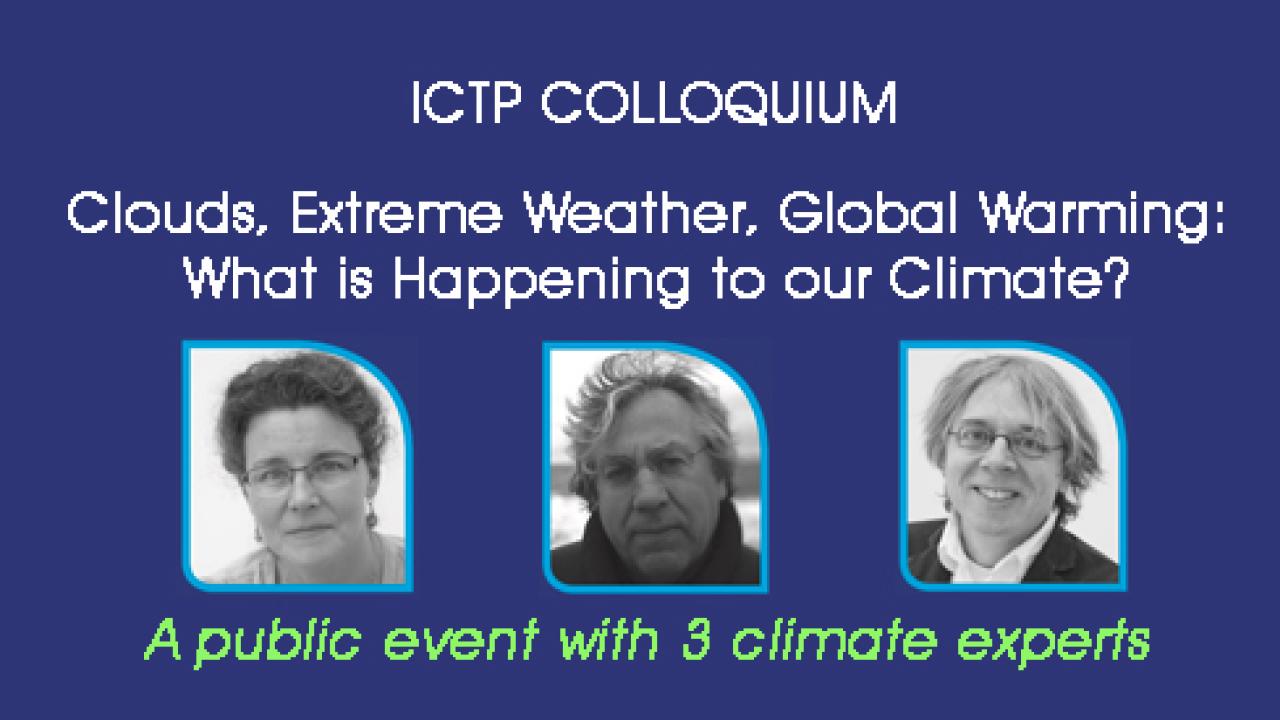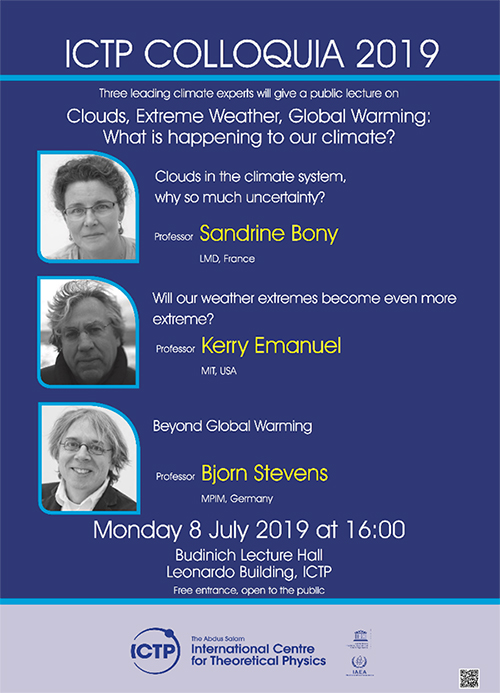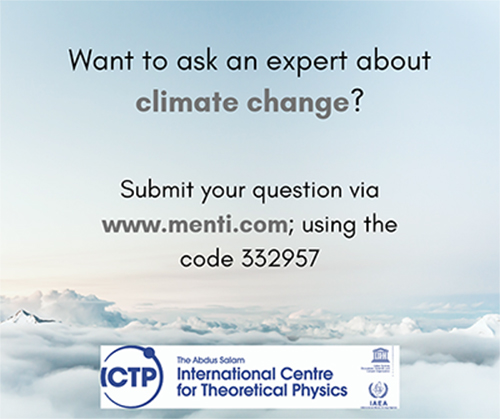
 Flash floods, heatwaves and hurricane-strength winds. Is it our imagination, or is our weather becoming more extreme? And if so, will extreme weather become even more frequent in the future and how certain can we be of our predictions?
Flash floods, heatwaves and hurricane-strength winds. Is it our imagination, or is our weather becoming more extreme? And if so, will extreme weather become even more frequent in the future and how certain can we be of our predictions?
Three climate experts will address these issues at a free public event on Monday 8 July at ICTP, starting at 16:00 in the Centre's Budinich Lecture Hall. The talks come at a time of heightened public awareness of climate change along with collective calls for action. One of the most visible, recent public movements has been the school-strike-for-climate gatherings inspired by the young Swedish activist Greta Thunberg.
"People in the last 5 to 10 years are really starting to notice that the climate around them is changing and is impacting their everyday lives," says ICTP researcher Adrian Tompkins, organizer of the ICTP public event and a member of the Centre's Earth System Physics (ESP) research section.
The ICTP event, titled "Clouds, Extreme Weather, Global Warming: What is Happening to our Climate?", gives the general public an opportunity to see how the world's top climate researchers study our climate and what those studies tell us about our current and future climate. Speakers include Sandrine Bony, a senior scientist at the French National Center for Scientific Research; Kerry Emanuel, a professor of atmospheric science at the Massachusetts Institute of Technology; and Bjorn Stevens, a director at the Max-Planck-Institute for Meteorology.
"This public event is part of a two-week workshop for students and junior scientists coming from around the world to hear a team of 20 top scientists debate issues relating to cloud dynamics and climate,” says Tompkins. “Cloud dynamics contribute greatly to uncertainty in climate projections.” Tompkins and his colleagues use global or very fine resolution models of cloud dynamics to try to improve understanding and reduce this uncertainty.
Because climate change is of such intense interest to the general public, ICTP hopes that this event will improve understanding of the key issues behind climate change science. “All three speakers excel at engaging the public, and they will be available to answer audience questions after their presentations," explains Tompkins.
Abstracts of the talks are below. The event will take place at ICTP's Leonardo Building, in the Budinich Lecture Hall, beginning at 16:00. The talks will be in English. The event also will be livestreamed at www.ictp.it/livestream.
NOTE: Audience members are encouraged to ask questions of the three speakers by submitting their queries online at www.menti.com using the code 332957. The questions will be presented to the speakers during the event.

Abstracts
Sandrine Bony, "Clouds in the climate system: why so much uncertainty?"
Clouds are often quoted as 'the largest source of uncertainty in climate change'. Why? Some of the reasons why clouds are so important for climate and climate change will be reviewed. By affecting the radiative exchanges between the Earth and space, clouds can influence the magnitude of global warming and the regional distribution of wet and dry areas around the world. Areas of research which might improve our understanding and prediction of the role of clouds in climate change will be discussed.
Kerry Emanuel, "Will our weather extremes become even more extreme?"
This talk will review the theoretical bases for the idea that tropical cyclones will become more intense and produce more rain as temperatures rise, and present some new results pertaining to Hurricane Maria in 2017. Of particular concern for Italy, the talk will cover what is known about Mediterranean hurricanes (or “Medicanes”) and how they might respond to climate change, with an extension to polar lows if there is time. Finally, the relationship between extratropical cyclones and climate will be discussed.
Bjorn Stevens, "Beyond Global Warming"
The outlines of global warming are clear. Earth has warmed by about 1 degree Celsius relative to a baseline in the late 19th century. Barring surprises, it will warm by an additional degree over the next half century. Beyond the general outline of this warming trend, and its causes, the science is anything but settled. This talk will look into the crystal ball of worlds unknown, explain why doing so is important, and outline new approaches that may help address the challenges a warming world poses for climate scientists.
















